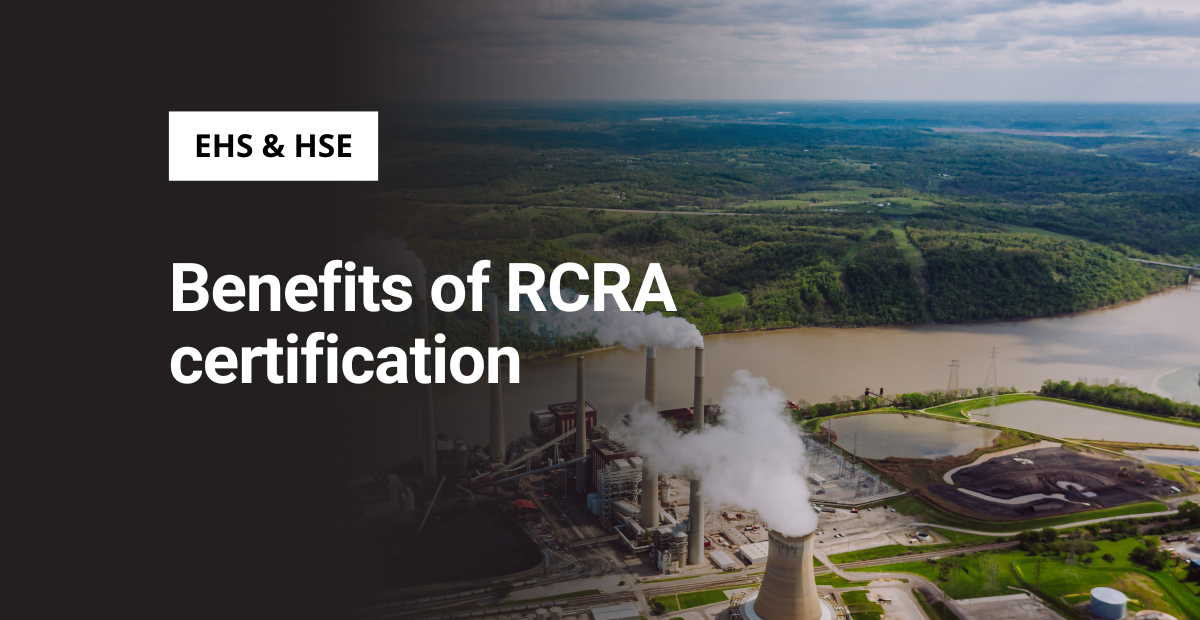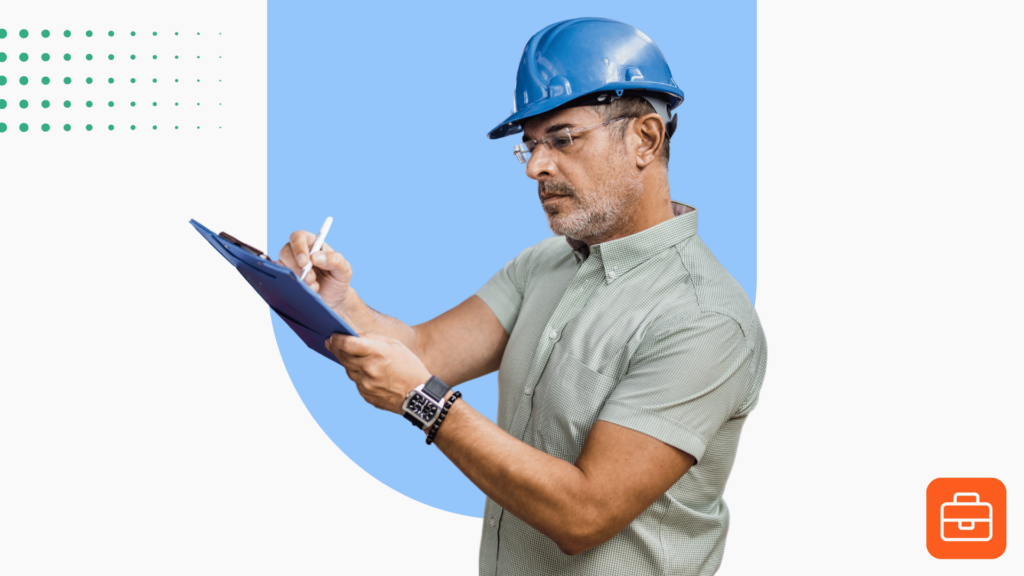EHS professionals ensure that their workplaces comply with regulatory requirements, often across multiple agencies. Achieving RCRA certification is fundamental for understanding these regulations. One of these standards is the Resource Conservation and Recovery Act, or RCRA.
Many EHS professionals seek RCRA certification to demonstrate their understanding of solid waste handling and disposal. This training not only benefits professionals who want to stand out within the EHS field, but it also benefits employers in several key ways.
RCTA certification: Benefits for EHS professionals
If you’re an EHS professional who’s considering RCRA certification, below are the top benefits you can expect from the experience.
Recognition of expertise and professionalism
Any companies who fall under RCRA compliance will be looking for managers and directors who understand the requirements. EHS certification demonstrates that you have the knowledge and skills required to manage waste materials within a facility.
This can improve your chances of securing interviews and job offers in a variety of fields.
RCRA certification: Career advancement
EHS certification can open up new career opportunities and increase earning potential. Many employers prefer certified professionals because these candidates are more likely to have solid knowledge of the regulatory requirements needed to succeed in the EHS field.
Obtaining an RCRA certification can increase your marketability to potential employers. And it can also help you specialize within the EHS profession, helping you secure more niche and high-paying roles.
Personal and professional development
Whether or not you’re considering RCRA certification to land a new job, ongoing learning should be something you always pursue. If you’ve managed waste materials in the past but really have no understanding of the purpose behind RCRA requirements, you’re missing out on potentially key pieces of the puzzle.
Staying up to date on the latest regulations, technologies, and best practices will help you improve in your current role.
Benefits for employers
Any company that deals with the use or production of solid materials (hazardous or non-hazardous) must adhere to RCRA guidelines. Hiring an EHS specialist who’s certified in RCRA will help you navigate these requirements and improve your business in several key ways.
RCRA certification: Compliance with regulations
While RCRA certification alone won’t protect your company from citations or incidents, it’s a step towards creating a compliant operation. EHS specialists with this training will know how to create processes that adhere to disposal requirements.
They can use their training to evaluate the current processes and make adjustments where necessary. Hence, once in place, they can make regular audits to ensure continued compliance.
Improved safety performance with RCRA certification
Certified EHS professionals have the knowledge and skills to identify potential hazards and implement effective controls to mitigate them. This can lead to reduced chemical risk at the site, which directly impacts safety and compliance. Improved safety performance can also result in reduced insurance costs and fewer regulatory penalties.
RCRA certification: Enhanced reputation
Hiring employees with RCRA certification demonstrates your commitment to environmental safety initiatives. With growing pressure from consumers to implement sustainable practices, RCRA compliance can only help your business to build credibility amongst the public.
It can also help attract and retain top talent, as job seekers often prefer to work for companies with a strong safety culture.
Cost savings for those with RCRA ertification
Paying a premium to either get your employees certified or to hire someone with an RCRA certification often leads to long-term cost savings.
The benefits of improved EHS performance can reduce your risk exposure to costs like regulatory penalties, workers compensation claims, and operational downtime.
If you view EHS expenses as investments, not sunk costs, you’ll be surprised at how many additional benefits you experience to employee satisfaction, brand perception, and other non-EHS related areas of performance.




